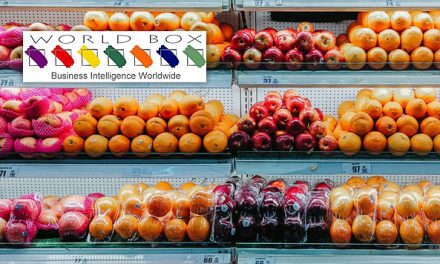Vietnam: An ideal destination for manufacturing and processing factories.
China used to be an attractive investment destination for the largest multinational corporations (MNCs) in the world. However, the tensions from the trade war between China and the US, and the outbreak of the Covid-19 pandemic have driven foreign investment capital away from the country.
In such context, many countries have set strategies to attract high-quality capital flows from China. Vietnam, with its potentials, is among those.
Vietnam: A hub for foreign direct investment (FDI)
Ms. Euijin Jung, an expert from the Peterson Institute for International Economics, said that Vietnam has similar advantages to China to attract investors including labor costs, natural resources, market model, incentives and tariff preferences.
Accordingly, the labor cost in Vietnam is about 2.99 USD per hour (data for 2020). This is lower than the average labor cost in China, which is about 6.5 USD. Therefore, Vietnam is absolutely an ideal destination for manufacturing and processing factories.
Vietnam is also a member of many free trade agreements with major economies in the world including ASEAN, Japan (2009), South Korea (2015) and the EU.
The recently signed free trade agreements (new-generation FTAs) give Vietnam a lot of advantages. Recently, investors from South Korea and the European Union have expressed their optimism about the benefits they can enjoy when the EVFTA comes into effect.
The success in controlling the Covid-19 pandemic also proves the stability and resistance of the Vietnamese market and economy.
Obstacles
According to the World Bank (WB), Vietnam ranked 70th in the Ease of Doing Business Index (EBDI), far behind China, who stays at 31st position. To explain this, the Peterson Institute for International Economics stated that Vietnam’s infrastructure, including the seaport, railway and road system, has not yet met the development needs. In addition, the customs and business registration procedures should be streamlined to facilitate businesses, and skills of workers must be improved through investment in education and training.
The Covid-19 pandemic has also prevented Vietnam from attracting investment capital. Measures to control the virus are very successful, however, they have constrained economic development. Increasing protectionism in many developed countries such as the US, Japan, Europe, and Korea may cause international trade distortions. Due to the impact of the Covid-19 pandemic, and the fact that countries are trying to become less dependent of China, protectionism will be on the rise.
That is why Vietnam, according to Ms. Jung, should build a trade opening policy, and facilitate exports to avoid reshoring.
![]() Author: Henry Tran – VietnamCredit
Author: Henry Tran – VietnamCredit
Guest post courtesy of VietnamCredit


























